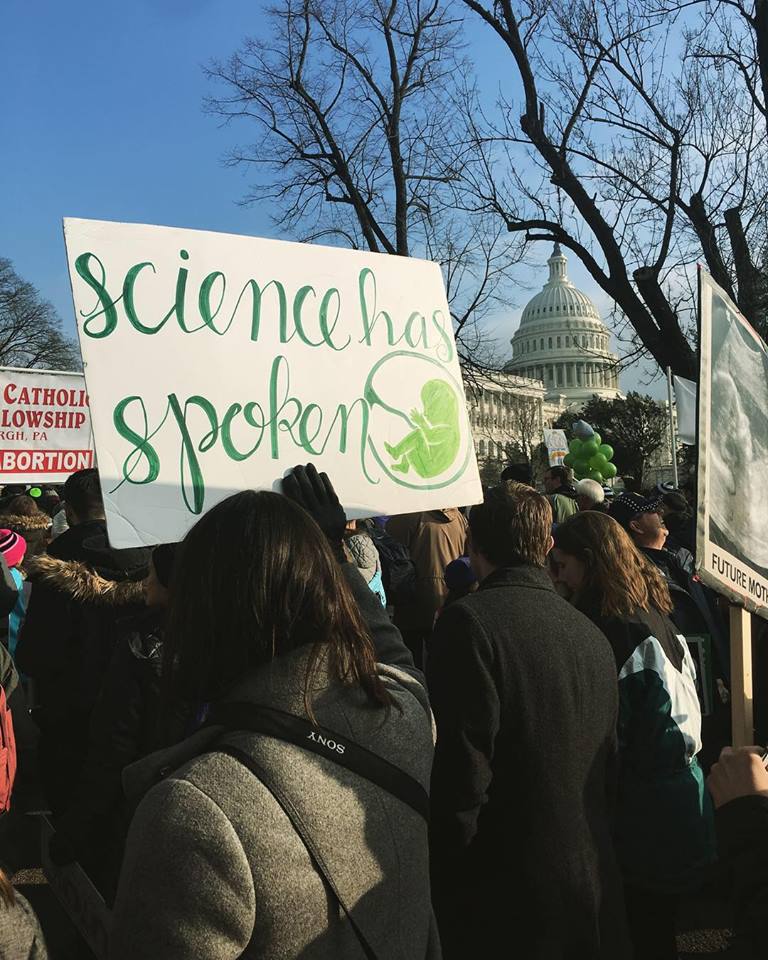
Hillsdale professors disagreed over the likelihood that the Supreme Court of the United States will overturn its Roe v. Wade decision as it takes up cases this term involving abortion rights.
“You have five justices who would not have decided Roe the way it was originally decided,” Assistant Professor of Politics Adam Carrington said, “but you also have justices who claim respect for precedent.”
The Supreme Court of the United States reviewed Texas’ controversial abortion law, Senate Bill 8, this week. The court is expected to hear Dobbs v. Jackson Women’s Health, in which the Court will decide if all pre-viability prohibitions on elective abortions are unconstitutional, in December.
In the 1973 decision Roe v. Wade, the U.S. Supreme Court ruled that the “right of privacy” is “broad enough to encompass” a right to abortion. The court ruling allowed states to make abortion in the third-trimester illegal, contingent on the existence of exceptions to protect the life and “health” of the mother.
If the court upholds the law’s unconventional enforcement, could their decision contribute to the eventual overturning of Roe v. Wade?
William and Berniece Grewcock Chair in Constitutional History Paul Moreno said he can guarantee Roe v. Wade will not be overturned because the case was overturned in Planned Parenthood v. Casey in 1982.
Carrington said if Roe v. Wade is overturned, the power to determine the right to abortion will go back to the states, returning the power to the people.
“There would be states like Mississippi that would almost for sure ban all abortions, and other states like New York and California that already have very progressive abortion laws would keep theirs, if not expand them,” he said. “Then you’d have states like Michigan in the Midwest that would be in between.”
Carrington argued Roe v. Wade was wrongfully decided, setting up the nation for strife and in-fighting.
“I think something that even people who agree with the outcome have admitted is that it’s also really poorly reasoned that it articulated a right that wasn’t listed in the Constitution,” he said.
He compared the case to Dred Scott v. Sanford, in which the court decided that descendants of American slaves were not American citizens and therefore lacked the standing to sue in federal court.
“Dred Scott was trying to settle the slavery question definitively, and that ended up exacerbating the very problem it thought it was trying to settle,” he said.
Carrington said the primary way to protect the right to life is not through Supreme Court decisions, but through transforming public opinion.
“It would be about building a consensus across the country, but you can’t really build that consensus if you don’t get the Supreme Court out of the way,” he said.
Moreno said Roe was largely upheld in Casey, but the justices imposed a new standard to determine the validity of abortion laws asking whether a state abortion regulation has the purpose or effect of imposing an “undue burden” on the woman.
“Casey did reinforce the central holding of Roe that there is a constitutional right to abortion,” he said, “but there’s a lot about Roe that it also threw away.”
Moreno agreed with Carrington that Roe is on the same level as the Dred Scott decision.
“Roe’s assumptions about how we don’t know when human life begins is biologically ridiculous, so it’s up there with Dred Scott as one of the worst cases in the history of the court,” Moreno said.
He said if states regained the power to determine the right to abortion, pro-abortion states would respond by refusing to enforce their constitutional requirement to protect the unborn.
Though Associate Professor of History Kory Maas said he would like to see Roe overturned, he, like Moreno, believes it is unlikely.
“There’s a long history of pro-life Americans putting a lot of confidence in the courts at various points to be disappointed,” he said.
However, Maas said excluding the past 40 years, precedent is on the pro-life side.
“There was precedents on the side of restricting abortion in English common law and therefore in colonial law and early American law,” he said.
Maas said he hopes the pro-life movement will continue to change minds on the grass-roots level.
“Aside from the question of ‘should you take this decision away from the states and the people who live in those states and let the Supreme Court decide,’ the whole argument of Roe v. Wade was grossly flawed on biological, legal, and even logical grounds,” Maas said.

